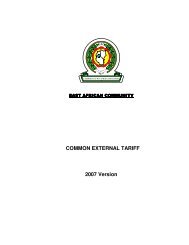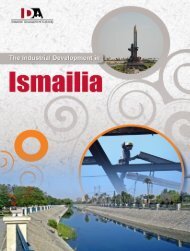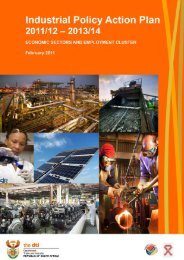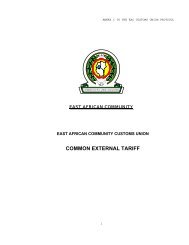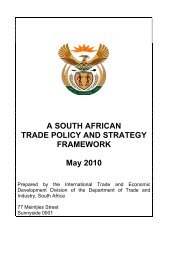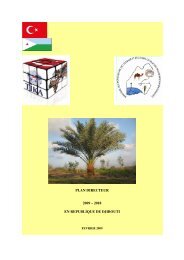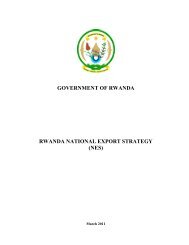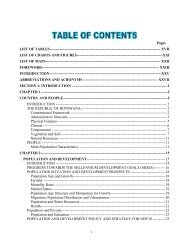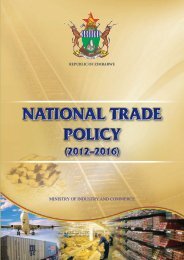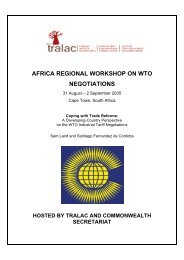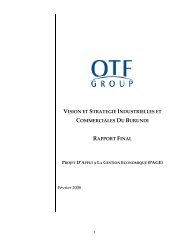Namibia Vision 2030 - Ministry of Environment and Tourism
Namibia Vision 2030 - Ministry of Environment and Tourism
Namibia Vision 2030 - Ministry of Environment and Tourism
You also want an ePaper? Increase the reach of your titles
YUMPU automatically turns print PDFs into web optimized ePapers that Google loves.
28<br />
There is a sound macro-economic environment that attracts <strong>and</strong> maintains private<br />
financial <strong>and</strong> real investors in the country. A condition <strong>of</strong> high economic growth<br />
exists which places <strong>Namibia</strong> in a ‘high’ income category, eliminating duality in the<br />
economy <strong>and</strong> assures equity in the pattern <strong>of</strong> economic growth. All <strong>Namibia</strong>n workers<br />
earn a decent wage which allows them a life well above poverty level. We now<br />
live very well as a people.<br />
It is imperative to seek viable options to poverty reduction <strong>and</strong> social upliftment that<br />
ensure environmental sustainability. Off-farm livelihood options are created so that<br />
subsistence agriculture is almost non-existent. Various initiatives <strong>of</strong> the poverty reduction<br />
strategy have proved to be successful in contributing towards rural upliftment,<br />
<strong>and</strong> also succeeded in reducing urban poverty.<br />
We have achieved considerable institutional advancements, including employment<br />
creation; improved social service delivery to the poor; re-directing investment patterns<br />
to open up a greater range <strong>of</strong> more environmentally friendly economic opportunities<br />
<strong>and</strong> livelihood options for the poor; promoting entrepreneurial drive <strong>and</strong><br />
small-scale enterprise development; de-regulating the business environment to unleash<br />
the absorptive potential <strong>of</strong> the informal sector; <strong>and</strong>, making the formal labour<br />
market more flexible in order to increase employment options <strong>and</strong> opportunities.<br />
3.4.7 The Private Sector<br />
Our development strategy is based on the principle <strong>of</strong> partnership. Partnership is<br />
recognised as a major prerequisite for the achievement <strong>of</strong> dynamic, efficient <strong>and</strong><br />
sustainable development in the country. This involves partnership between government,<br />
communities <strong>and</strong> civil society; partnership between different branches <strong>of</strong> government,<br />
with the private sector (the business community), non-governmental organisations,<br />
community-based organisations, <strong>and</strong> the international community; partnership<br />
between urban <strong>and</strong> rural societies <strong>and</strong>, ultimately, between all members <strong>of</strong><br />
<strong>Namibia</strong>n society.<br />
We, therefore, promote a system in which harmonious <strong>and</strong> effective public <strong>and</strong> private<br />
relations are preserved; <strong>and</strong> at the centre <strong>of</strong> these relations is the human resource<br />
development, resulting in a well trained <strong>and</strong> educated nation, which is innovative,<br />
self-empowered <strong>and</strong> determined to succeed. Nation-building will be both a<br />
private sector (including civil society) <strong>and</strong> public responsibility.<br />
The business community makes increasing contributions to the education <strong>and</strong> training<br />
sector, as the major recipient <strong>of</strong> the products <strong>of</strong> the system. In addition, the



